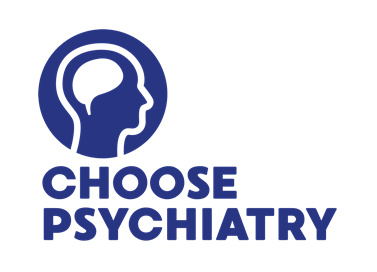Life as a neurodivergent psychiatrist
10 November, 2023
This blog post by Dr Anna Rebowska is part of the 2023 Choose Psychiatry campaign.
I am a consultant child and adolescent psychiatrist and enjoy a portfolio career. My current job plan spans across the community and forensic CAMHS with additional roles in safeguarding and medical management.
I enjoy the variety of a portfolio career and I could write a blog encouraging you to choose psychiatry from any of those perspectives but today I would like to share with you my experience of being a neurodivergent doctor.
I have been identified to have a number of neurodevelopmental conditions, including autism, dyspraxia and dyslexia, just after starting primary school. and I like to describe myself as neurodivergent as it nicely encompasses it all without having to go through a long shopping list of problems.
Strong support
I have been lucky to have had strong support during my early schooling, which allowed me to reintegrate successfully into mainstream education and pursue my ambition of becoming a doctor.
It has not always been plain sailing and juggling the demands of medical school whilst simultaneously working part-time as a healthcare assistant and learning how to successfully manage day-to-day demands that come with being an adult was particularly tricky.
I initially thought that anaesthetics is the best choice of speciality for me the projects that I chose to work on revolved around supporting people with mental health needs.
I have even won a Royal College of psychiatrics prize for an essay on managing pain in people experiencing opioid addiction.
A taster session led to a career in psychiatry
My supervisor at the time noticed that my communication skills were very strong and suggested that I do a taster week in the local psychiatric department. That was a turning point and I went on to pursue psychiatry as a career.
I have found core training particularly difficult as I struggle with change and the constant rotation between distant locations and specialities was incredibly draining.
I have always enjoyed working with children and I knew that child and adolescent psychiatry is the path I want to pursue but during my core training I had a fantastic placement in a medium secure CAMHS unit, which has later influenced my career trajectory.
A high flying neurodivergent doctor
Whilst I do struggle with some basic tasks like a supermarket shop or driving myself from A to B I am an academic high flyer and I have passed all my college exams at a first attempt.
I often reflect on the fact that the only time I have ever heard about other neurodivergents in medicine was in the context of doctors in difficulty and it left me unheard and unseen.
When I started my first consultant post I was keen to find a support network for myself of likeminded individuals and this has led me to the Autistic Doctors International. I was surprised and delighted to find that psychiatrists were the second most common speciality declared by members.
Leadership roles
Friendship and mentorship of others following a similar path gave me the confidence I needed to take on leadership roles and to advocate for myself as well as other neurodivergent doctors.
My advice for neurodiverse doctors considering career in psychiatry is to reach out to established support networks and arrange to experience it for yourself through placements and shadowing.
Diversity is important to creating a successful workforce. We know that neurodivergent people are more likely to experience mental health difficulties and having clinicians with lived experience will help us better cater to our patients needs moving forward.
Dr Anna Rebowska, Consultant Psychiatrist
Make a difference – choose psychiatry
Considering a career in psychiatry? Hear from working psychiatrists why they chose psychiatry and how rewarding the job can be.
Or if you've taken a break from work or training, let us show you the wide range of support on offer as you return.


